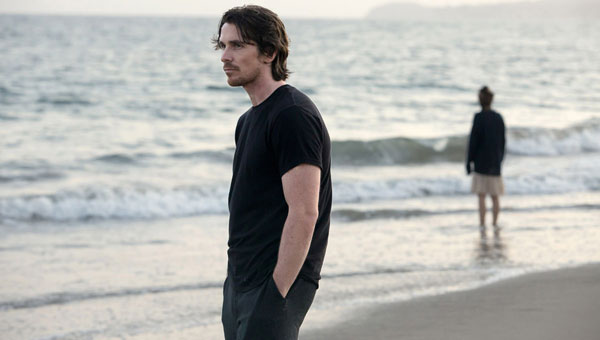Knight Of Cups Review

Film reviewers are a funny lot.
Wrapped up in the PR hype that expensively produced film franchises create, they excel in presenting average films as something supposedly brilliant.
Like last year’s mediocre Star Wars and James Bond films.
Yet, when something as non-linear as Terrence Malick’s Knight of Cups comes along, they totally misread the cards.
Based on the tarot card of the same name, Knight of Cups is a vague, almost dreamlike tale of a Christian Bale shaped chap who has become lost in his own life, distracted and seduced by the many vices life has to offer.
And that’s pretty much it as far as the plot goes.
Now you could try and review Malick’s latest cinematic adventure as a conventional film, as so many other reviewers have done – but that would miss the point quite spectacular.
Knight of Cups is not about the characters and their literal journeys, as so many critics have strangely obsessed over, and if you’re looking for a film where one dimensional motivations are explicitly spelt out for you, this really isn’t the celluloid you’re looking for.
Instead, characters in Knight of Cups act as empty vessels for the yearning nature of men and women as we stumble through our own lives in search of whatever it is we’re looking for.
Said characters, dialogue and plot are all vaguely sketched out, but deliberately so – allowing us to decide for ourselves what the protagonist’s story is, and which elements of their story we want to identify with are.
Well, that’s my read on it anyhow – which is more than the actor formerly known as batman got to read when shooting this film.
The story that Bale wasn’t given a script for Knight of Cups has been doing the rounds for a while, but when you watch the film it actually makes sense.
Bale’s character is a lost soul and his unknowing performance is a good fit for them film most of the time. It’s not perfect mind, as Bale frequently appears all too conscious about how he thinks he’s supposed to react to his fellow cast members’ lines, instead of just being in the moment.
There’s a stellar ensemble cast too, with a clutch of hollywood’s leading ladies effectively playing opposite Bale as the many different faces of femininity, while Malick introduces themes inspired by other tarot cards as we go.
Of course, none of this makes Knight of Cups a good film – and in a lot of ways it isn’t; but it is interesting, and in our world of factory line mainstream cinema, sometimes that’s more attractive.
Jonathan Campbell